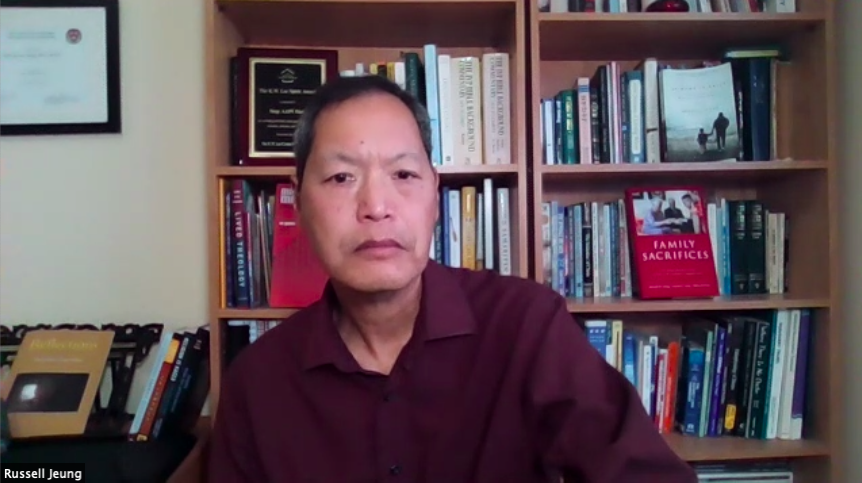San Francisco State University professor and Stop AAPI Hate co-founder Dr. Russell Jeung B.A ’84, speaking at Stanford’s annual Asian American issues conference “Listen to the Silence,” advocated for multiracial solidarity and increased visibility for Asian American and Pacific Islanders (AAPI) in responding to a recent surge in anti-Asian discrimination due to the COVID-19 pandemic.
To better understand the discrimination and violent attacks that the AAPI community faces, Stop AAPI Hate — Jeung’s advocacy organization that collects data on anti-Asian discrimination during COVID-19 — developed a website allowing people who directly experienced hate crimes to report them. According to Jeung, the website received hundreds of reports each day during the early stages of the COVID-19 pandemic. Older people with limited English-speaking abilities were more likely to write about incidents of racial discrimination, he said.
During the event, speakers read off several reports of personal racism among elderly Asians, many of which involved racial slurs, harsh stereotyping and even physical threats from strangers.
“On my daily walk in my hometown Sausalito wearing a face mask, a white woman yelled at me, ‘I hate Chinese people, why do they come to this country?’” read one report by a 71-year-old from California. “When she passed me, I was stunned by her words and [they] caused me to fear and be more alert of my surroundings.”
Jeung also delved into statistics about how racial discrimination is experienced among AAPI members, saying that verbal harassment, shunning and physical assault were the three most common types of discrimination experienced among AAPI individuals. Data from Jeung’s website also shows that businesses and public areas were the most common sites for AAPI people to experience racism.
Racial discrimination towards the AAPI community has greatly impacted their livelihoods in various forms, Jeung said. He indicated that respondents to his website have displayed mental health issues such as depression, anxiety and somatic symptoms due to racial trauma. He added that AAPI members have faced greater levels of unemployment and have had civil rights stripped by anti-immigrant policies such as the banning of WeChat, a popular Chinese messaging app.
Jeung attributed the racial profiling of and attacks against Asian Americans to political rhetoric and media representations. He emphasized that people’s worldviews are heavily influenced by social media and politics and that COVID-19 has been heavily racialized and associated with AAPI individuals.
“Asians are racialized as perpetual foreigners,” Jeung said. “You could see that in COVID-19, that people see us as being disease carriers. Outsiders. Being the source of the disease. And because we’re outsiders, they try to exclude us.”
Jeung repeatedly drew a distinction between the model minority stereotype, which paints Asians as insiders with close proximity to whiteness, and the perpetual foreigner stereotype, which he describes as “insidious” and “what Asians should be calling much more alarm to.” He cited the historical precedent of Asians being scapegoated by the U.S. government, which has often led to interpersonal violence and the enactment of discriminatory policies.
As he looks to the future, Jeung expressed hope that the current momentum of the movement — including recent statements from corporations and prominent politicians — will lead to increased visibility and meaningful change. Stop AAPI Hate has issued a series of federal recommendations, which prioritize multiracial solidarity and community recovery from trauma. Jeung specifically stressed that responses to calls for increased policing in areas where violence has happened are misled. “We don’t need more mass incarceration, we need more racial healing and solidarity,” he said.
He also continues to find hope in the resilience of the Asian American community and its allies.
“I don’t want to belong to America as it is,” Jeung said. “ What I hope for, what I dream of, is what I saw last weekend in Oakland when we had a racial healing rally … it’s our chance to actually have that racial reckoning and that moral reawakening to envision a better America that we would all want to belong to.”
